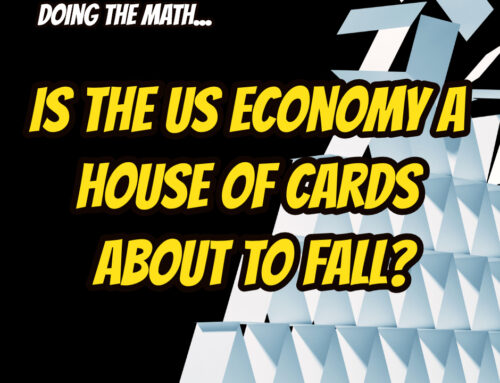A tale of two grandpas…
By Jerry Yu
I first arrived in the United States from Taiwan, a teenaged boy who could barely manage a few words in English. I clung to my Chinese-English dictionary hoping someone would understand me, and hoping I’d get the hang of this strange new Western culture.
Because I was young and wanted to fit in as most kids do, it didn’t take me long to settle into my new home and language. However, balancing my Chinese identity with my new one was no easy task. Ever since I first arrived in America, I have felt as if I were living in two different worlds at the same time.
I remember my parents telling me, “XiaoPang (my nickname, which means “little chubby” in Chinese), your job is to study and get a good job. Don’t worry about money. Money is your parents’ job.”
My parents were eager for me to be successful in life as soon as possible. They imagined me becoming a doctor, a lawyer, or a CPA. Mom and Dad thought learning about money, even learning how to balance a checking account or use credit responsibly was a waste of my time. Financial literacy isn’t the sort of thing a Chinese kid is supposed to learn in college.
While this mindset is common in Asian cultures, I quickly discovered that it was not usually the case here in America. Many of my college friends worked to pay for their education, or took out student loans. Because their parents had not prioritized self-sacrifice to pay for their college, these students had to learn about money by working hard and being frugal. For me, this was an entirely different approach to raising a family.

Chinese vs. American Grandpa
In America, there’s an intensely independent streak. When you hit your early twenties, you are supposed to be on your own. When you retire, you’re encouraged to think of yourself now that your family is grown. In America, parents often talk to their kids about money believing that the sooner they learn about the value of a dollar, the better.
In Chinese culture, it’s much different. Most of the time, when you are twenty, your parents are still taking care of you. As you grow in your career, you are supposed to put all of those gains back into your family. You are expected to help provide for your parents’ retirement. You are also supposed to skimp on your own retirement so you can leave more to the next generation.
Both perspectives have their pros and cons. What if we had two grandpas? One is Chinese and one is American. Let’s assume both of them have been fairly successful in life, and each of them is entering retirement with $1 million in savings.
This is the sum of their financial kingdom—all they have to take care of themselves and to use as a legacy for their children and their grandchildren. The Chinese grandfather is traditional and frugal. He spends as little on himself as possible and leaves as much as possible for his kids. The Chinese grandfather wants to make sure that when he dies, he can leave that entire $1 million estate to his two children.
Now I have to admire this grandfather for his determination to leave the bulk of his estate to his heirs. But, although he eventually left $500,000 to each of his children, he didn’t get to enjoy his own retirement very much. What’s more, his children have also absorbed his money mindset. Unfortunately, by the time the kids pass their financial kingdom on to their own kids, they have only managed to maintain that $500,000. Since each of them had two kids of their own, the Chinese grandfather’s legacy becomes only $250,000 for each grandchild.
Within two generations, this family’s financial kingdom is beginning to show cracks. Unless the grandkids shift their thinking, there won’t be much left of that legacy for their kids. What makes matters worse, not one of them has gotten much enjoyment from the family wealth because they’ve been focused on saving and belt tightening.
On the other side is the American grandpa with his $1 million. Unlike his Chinese counterpart, American grandpa believes in enjoying the money he’s earned and saved. He and American grandma take a luxury cruise every year, they’re members of the local country club, and he finally got own that Porsche he’s always wanted. If there is anything left over, American grandpa figures he’ll leave it to his two kids.
American grandpa has diligently schooled his kids in personal finance. They know how to save and invest, how to manage debt, keep their credit card expenses low. American grandpa expects his heirs make more out of less because they have this knowledge.
By the time he passes, he only has $500,000 to split between his two children. With that $250,000 each, they are able to regain some wealth in the family financial kingdom. However, at the time of their own retirements, their wealth stands at $500,000 each. They haven’t grown their wealth, they have only managed to return to their father’s previous total.
You can probably guess what happens next. These American children set out to enjoy their retirement as much as their father did and whatever was left unspent, went to their children.
By the time that cash reaches the American’ grandfather’s four grandchildren, each might only get $100,000 each. Now, if they use the financial education that’s been passed down from generation to generation, it’s possible that each grandchild could double that kingdom.
It’s also possible they’ll wind up in the exact same position as the Chinese grandchildren, with about $250,000 from an original $1 million as the family’s financial kingdom continues to decrease.

Limitations on Two World Views
Clearly, there are issues with both world views. In the case of the Chinese grandpa, he was not able to enjoy his own retirement. When he passed his money on, his children didn’t know what to do with it. The money was continually cut in half each generation. By the time it reached his great-grandchildren, it was likely there would be almost no legacy at all.
But it was no better for the American family. There, the American grandpa definitely got to enjoy his money more, and he wisely shared his knowledge on how to double that money over a career. However, the results were about the same. Each generation ended up with about half of what the last had. There was no growth in the financial kingdom. There was only steady loss until the legacy disappeared in a few generations.
There’s always the chance that they are one accident, one poor investment, one overly expensive purchase, or one divorce away from losing the whole kingdom. So even if the kingdom is technically there, it may not be fortified.
For more information on how you can fortify your financial kingdom, make an appointment with me, or get a copy of my first book,
Visit https://jerryyu.retirevo.com/





